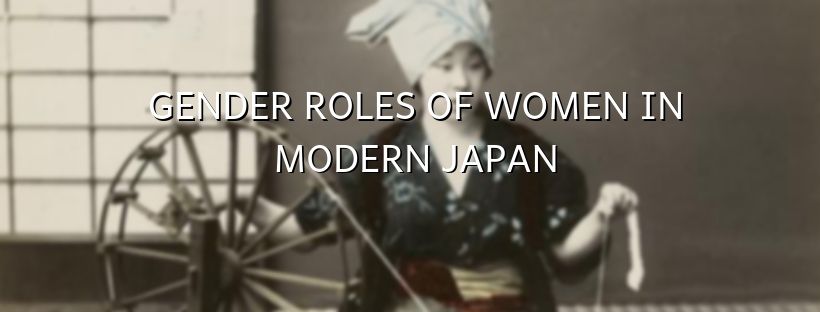
I wrote this article on June 22, 2014. Since then, Japanese women have seen some changes in their status in Japanese society. Their efforts to break through traditional gender roles has taken several decades to get to their current point. In fact, more Japanese women work today than American women. But Japan’s traditional female roles remain an influence. The Conclusion of this article touches on the continued challenges Japanese women face. I’ve updated this article to reflect the new information.
This article focuses on women’s gender roles in modern Japan; we cannot discuss these roles without touching on gender role history and the roles of men. Male and female roles influence each other. History shapes these roles too. My previous article about gender expectations in Japan, gives you a brief outline of Japan’s history with gender roles.
Brief History of Female Gender Roles
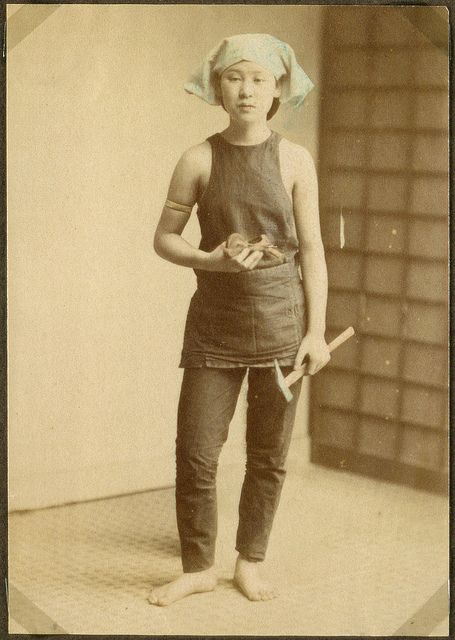
National Museum of Denmark.
Confucian ideals influenced Japan. Confucian society focuses on the family. Men are the heads of the household; women are dependent on the men. Each have predefined roles. Confucian society expect women to marry, produce heirs, and over see the household. Until just after World War II, Japanese culture favored arranged marriages. Although folklore expressed love within these marriages as the ideal, marriage remained a business contract between families and within the community. For example, the folktale “The Death of Cho” focuses on the community aspect of marriage on a small island:
On Hatsushima Island, a beautiful girl named Cho became known for her charm and refinement. At the age of eighteen, every young man on the island had fallen in love with her, but few dared to ask. Among them was a handsome twenty-year-old fisherman named Shinsaku.
Shinsaku approached Cho’s brother Gisuke about his prospects. Gisuke rather liked Shinsaku and didn’t have a problem with Shinsaku marrying his sister. In fact, he suspected their mother would also approve of Shinsaku if she was still alive.
So Gisuke went to speak with this sister. “You know, you really should marry soon. You are eighteen, and we don’t want spinsters on Hatsushima or girls brought from the mainland to marry our men. Shinsaku would be a good match.”
She rolled her eyes. “Please spare me the talk about being a spinster again. I don’t intend to remain single. Out of all the men of the island, I’d rather marry Shinsaku.”
This delighted Gisuke. He and Shinsaku decided to hold the wedding in three days. As news of this spread, the other men of the island grew angry at Shinsaku. The men ignored their fishing as they debated about a way to thwart Shinsaku and give each of them a fair chance at winning Cho’s hand. Some disagreements even broke into fistfights.
The news of the fights and grumbling reache Gisuke and Shinsaku. They consulted with Cho and agreed that to break off the marriage for the island’s peace. But this did little to take the kettle off the fire. Each day, fights broke out among the thirty bachelors of the island. Depressed that her happiness and life could cause such hardship in the village, Cho decided she had only one recourse. She wrote two letters, one for Gisuke and one for Shinsaku.
“For over three hundred years our people have lived happily and peacefully. Now because of me, all we have is fighting and anger. It would be better if I hadn’t been born. So I’ve decided to die to bring everyone back to my senses. Please tell them this. Farewell.”
After leaving the letters next to the sleeping Gisuke, she slipped out of the house and into a stormy night. She climbed the rocks near their cottage and leaped into the sea.
The next morning, Gisuke found the letters. He rushed out to find Shinsaku. After they read the letters, they went out to search for her, knowing that they were already too late. They found her straw sandals on the rocks near her home, and Gisuke knew she had jumped into the sea. He and Shinsaku dived and founder her body on the seabed. They brought it back to the surface and buried it near the outcropping she leaped from.
From that day, Shinsaku couldn’t sleep. He kept Cho’s letter and straw sandals near his bed, surrounded by flowers. Each day he visited her tomb. As the days passed and his grief increased, Shinsaku decided his only recourse was to join her. He went to her tomb to stay goodbye. He happened to look up on the rocks and saw her standing there.
“Cho!” he shouted and ran toward her.
Shinsaku’s shout woke Gisuke. “What’s going on?” he asked.
“I saw her,” Shinsaku said. “I was going to jump into the sea so I could find her, but then she showed herself.”
Gisuke made a noise deep in his throat as he thought. “She did that to stop you. She wouldn’t want you to die. Rather, you should dedicate your life to something. Tell you what, I will help you build a shrine to her. She will wait for you to die naturally. You can please her by never marrying anyone else.”
Shinsaku nodded. “How could I marry another woman?”
Cho’s death had shaken the other bachelors of the island. When they learned Shinsaku and Gisuke started building a shrine to Cho, they joined them. The shrine was called “The Shrine of O Cho-san of Hatsushima.” On the anniversary of her death, each June 10th, the islanders held a ceremony in her memory. Every June 10th, it rained. The fisherman wrote a song in her honor:
Today is the tenth of June. May the rain fall in torrents!
For I long to see my dearest O Cho-san.
Hi, Hi, Ya-re-ko-no-sa! Ya-re-ko-no-sa!
As a part of the contract, a wife could be returned to her family if she failed to produce an heir or caused too much disruption in the husband’s family. Family lineage was more important than marriage. Ideally, three generations would live under a single roof.
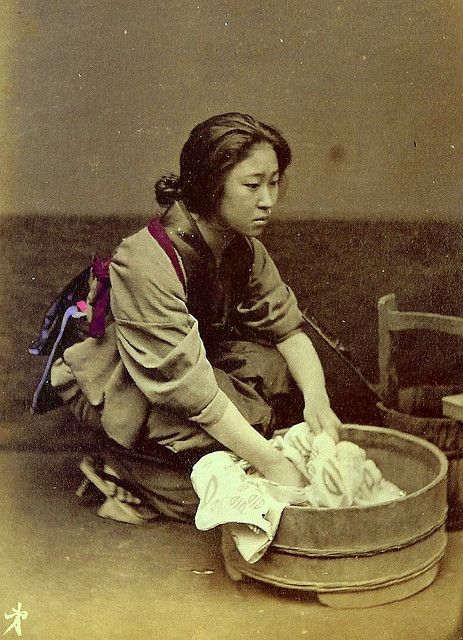
During the Tokugawa Shogunate (1602-1868), women did not legally exist. Women could not own property and were subordinate to men in every way (Friedman, 1992).
Gradually, Confucian family ideals shifted. The largest shift happened after World War II. In 1946, the Japanese Constitution revised a set of laws that defined Japanese family relations. The Civil Code of 1947 granted woman every possible legal right:
- Women could own property.
- Women could inherit a family estate.
- Women could marry and divorce freely.
- Women gained parental rights.
- Women could vote.
Women were granted additional rights. The revised Civil Code sought to create equality between the sexes. Despite legal equality, in practice women were not equal. The Civil Code was a marked shift in thinking. Before, a woman was expected to be dependent on her father, her husband, and finally on her eldest son. All were heads of the household. Now, should could be the head of the household (Sato, 1987).
Women were still expected to protect the household. Men were expected to be the breadwinners (Cooper, 2013; Sato, 1987; Saito, 2007 ).
Chores and Marriage
In 2007, Japanese men average only 30 minutes of housework, child care, and elder care each day (North, 2009). This is regardless of how much the wife works. Wives are expected to shoulder these tasks. Although this is changing. Part of the slow pace of change simply has to do with time. In Japan, men are often overworked and underpaid. They live their jobs.
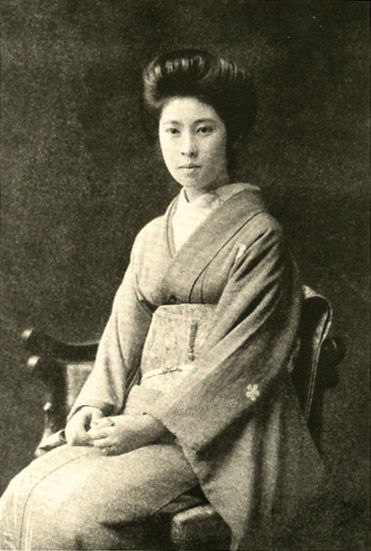
- Men are expected to be ideal workers, putting the goals of the company first.
- Children are entitled to having a full-time parent.
Women are expected to be this full-time parent. The man simply cannot be a full-time parent with the demands of his company (mandatory over time, for example). Women are entitled to not much beyond motherhood; men are not entitled to much beyond work (Bae, 2010).
Women’s happiness is found only in marriage, according to tradition. Women marry between 22-27 years old. It was not uncommon for women to be socially outcast if she failed to marry by 27. However, this is changing. It is becoming more acceptable for both men and women to marry later in life.
Traditional Family Structure
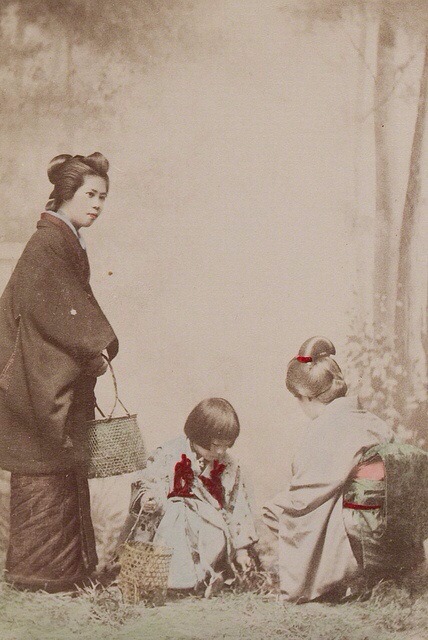
The problems Japanese woman face relate to the traditional family structure. This system is called the ie. The head of the household was responsible for finding a marriage partner for the family’s heir. Married women had to produce an heir. This structure continues in how a husband and wife refer to each other in public (Kawamura, 2011) :
- shujin – used by a wife to address her husband in public. It means “house master.”
- kanai – used by a husband to address his wife in public. It means “one who remains inside the home.”
In Japan, children are almost exclusively birthed within marriage. Unmarried women make up only 2% of births. Marriage and children are synonymous (Kawamura, 2011; Saito, 1987).
While the traditional structure and societal expectations seem to work against women, they work equally against men. Men who do not want to work long hours or want to be stay at home dads face criticism.
The Three Submissions
In the ie tradition, women submitted to male authority in three ways (Cooper, 2013).
- When young, she submits to her father.
- When married, she submits to her husband.
- When old, she submits to her sons.
Motherhood is considered the defining characteristic of a woman. Motherhood is adulthood in many regards. Many young Japanese women struggle to form their own sense of identity apart from this cultural expectation. The idea of shojo caused a stir when it first appeared because it was between girlhood and motherhood. Kawaii bunka, culture of cute, tried to form an identity between girlhood and motherhood apart from the expected three submissions. It is becoming more common for single women in their late twenties to early thirties to be recognized as shakaijin – members of society, but they still face social pressure to marry (Pike and Borovoy, 2004).
The Shifts in Female Gender Role
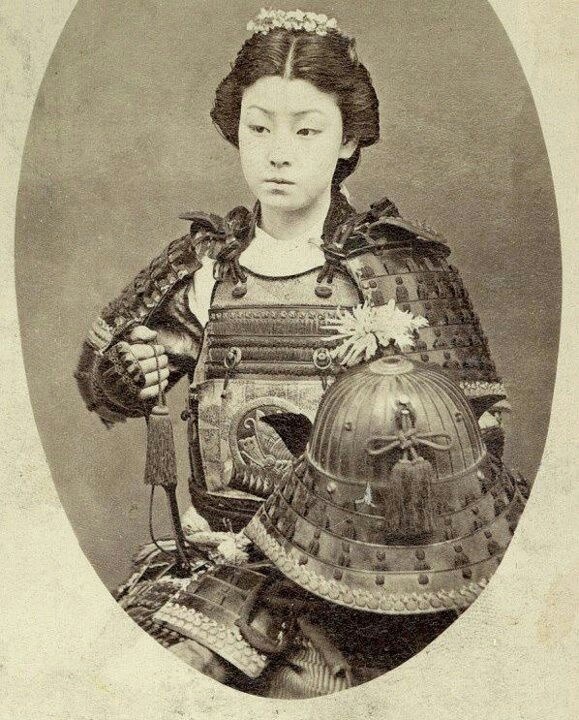
One of the female warriors of the upper social classes in feudal Japan.
Phew, with all of that behind us, some of you might be a little upset. Women are making strides toward equality in Japan. Equality benefits men as much as it does women. Some women crave gender-defined tasks despite the progress of equality. Filling these roles (such as shopping and taking a dinner menu request from the husband) is seen as intimacy and validation (North, 2009). That’s why you see man anime girls make bento boxes to express their affection.
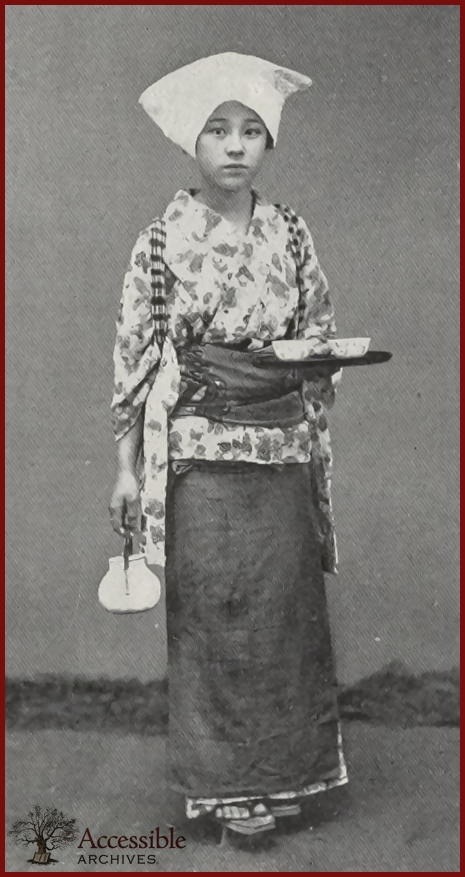
Moving away from traditional roles opens both men and women up to problems. Many follow the traditional method to avoid rocking the boat with family members. Even “modern” families, those that try to evenly divide work and family obligations, keep some of the traditional roles. The roles kept vary. Advertising is slowly catching up with this role negotiation. Fathers are more fashionable and there are even magazines dedicated to fatherhood (North, 2009).
I will outline some of the shifts in women’s gender roles and effects of these shifts:
- Both men and women express strong intentions to marry. In Japan, like in the United States, marriage is a marker of adulthood (Kawamura, 2011).
- Married women in Japan increasingly hold part-time and full-time jobs (North, 2009; Japan Times, 2012).
- Dual income households report less stress on the husband compared to traditional households (Bae, 2010).
- Both men and women feel more satisfied in dual income households that share family roles (Bae, 2010). The sharing of family roles is slowly increasing.
- Japan faces a shortage of children because of the shifting roles of women, economic realities, and the reluctance of many men to share what was once considered female tasks (Kawamura, 2011).
- Despite the changes, Japanese TV still portrays traditional gender roles: men hold male jobs (police officer, soldier etc); women hold traditionally female jobs (housewife, nurse, etc). This is thought to slow role changes across most demographics (Shinichi, 2007).
- Women are increasingly educated. Like in the United States, Japanese women with college level education are overtaking men.
Preference for Daughters
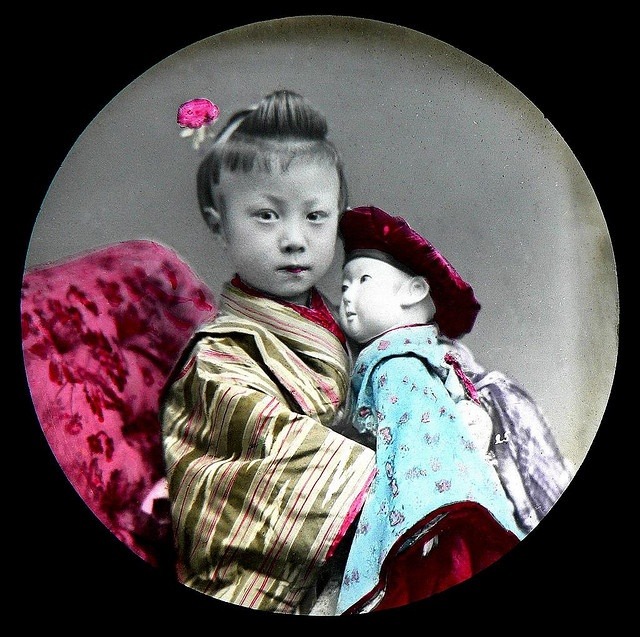
Increasingly, families want to have daughters rather than sons. Woman favor daughters more than men, yet men also increasingly favor daughters over sons. Remember, Japan shares Confucian views with China and Korea. Sons are supposed to carry on the family name. Traditional-minded men tend to favor sons. Traditional-minded women favor daughters.
The preference for daughters points to a continuation of tradition in regards to women and a more liberal view with men. Women may favor daughters because they want the daughter to help in traditional roles: care giver and companion. (Fuse, n.d.).
Conclusion
Like in the United States, Japanese women have a distance to go to achieve full equality. Japanese women work outside the home in greater numbers than American women. As of 2016, more Japanese women had jobs than American women. 74.3% vs. 76.3%. However, this doesn’t reflect in wages or academics. A Japanese woman earns 73% of a man at the same level. Japanese women account for 49% of university students, but they only make up 14% of faculty positions. In business, Japanese women account for 2% of positions on boards of directors and 1% of executive committee members. They also make up less than 1% of CEOs (Diamond, 2019).
Japanese women continue to struggle against misogyny and objectification. In Japanese media, you see women fall between the goddess problem and objectification. In both cases, she isn’t seen as a person. Men also have less-than flattering portrayals in media. Often, men appear driven by sex and other base motivators.
The structure of Japan’s businesses doesn’t help matters. Most Japanese women want to work, but many also want to have children. Japanese companies invest on training employees and offer a life-long job. In return, they expect employees to work long hours and remain with the company for life (Diamond, 2019). Women don’t want to work such long hours and want time off to have children. They also may not return to work after having a child because of the lingering traditional pressures. This all adds up to companies being reluctant to offer high-level positions to women and to pay them equally with men. It will take more time to change Japan’s corporate culture.
These factors combine with people’s reluctance to get married, resulting in Japan’s low birthrate. Remember, only 2% of births happen outside of marriage. Increasingly, Japanese people don’t consider marriage necessary for a fulfilling life. Marriage can be a financial catastrophe for women because of the corporate culture. However, the decline in population will reduce the resource strain Japan currently experiences. Right now, Japan imports much of its raw resources, which isn’t sustainable.
Japanese women have made strides toward the ability to balance career and family, but it still remains an either or proposition. Tradition will continue to be an influence for decades to come.
References
Bae, J. (2010). Gender Role Division in Japan and Korea: The Relationship between Realities and Attitudes. Journal Of Political Science & Sociology, (13), 71-85.
Cooper, J. (2013). The Roles of Women, Animals, and Nature in Traditional Japanese and Western
Folk Tales Carry Over into Modern Japanese and Western Culture .
Diamond, Jared (2019) Upheaval: Turning Points for Nations in Crisis. New York, Little, Brown and Company.
Friedman, S. (1992). Women in Japanese Society: Their Changing Roles. http://www2.gol.com/users/friedman/writings/p1.html
Fuse, K. (n.d). Daughter preference in Japan: A reflection of gender role attitudes?. Demographic Research, 281021-1051.
Kawamura, S. (2011). Marriage in Japan: attitudes, intentions, and perceived barriers. (Electronic Thesis or Dissertation). Retrieved from https://etd.ohiolink.edu/
Kazuko Sato, E., Mitsuyo Suzuki, E., & Kawamura, M. (1987). THE CHANGING STATUS OF WOMEN IN JAPAN. International Journal Of Sociology Of The Family, 17(1), 88.
“Married Women Want to Work.” The Japan Times. N.p., 4 June 2012. Web. 4 Mar. 2013.
http://www.japantimes.co.jp/opinion/2012/06/04/editorials/married-women-want-to-work/
NORTH, S. (2009). Negotiating What’s ‘Natural’: Persistent Domestic Gender Role Inequality in Japan. Social Science Japan Journal, 12(1), 23-44.
Pike, K. & Borovoy, A. (2004). The Rise of Eating Disorders in Japan: Issues of Culture and Limitations of the Model of “Westernization.” Culture, Medicine and Psychiatry 28:493–531
Shinichi, S. (2007). Television and the Cultivation of Gender-Role Attitudes in Japan: Does Television Contribute to the Maintenance of the Status Quo?. Journal Of Communication, 57(3), 511-531. doi:10.1111/j.1460-2466.2007.00355.x
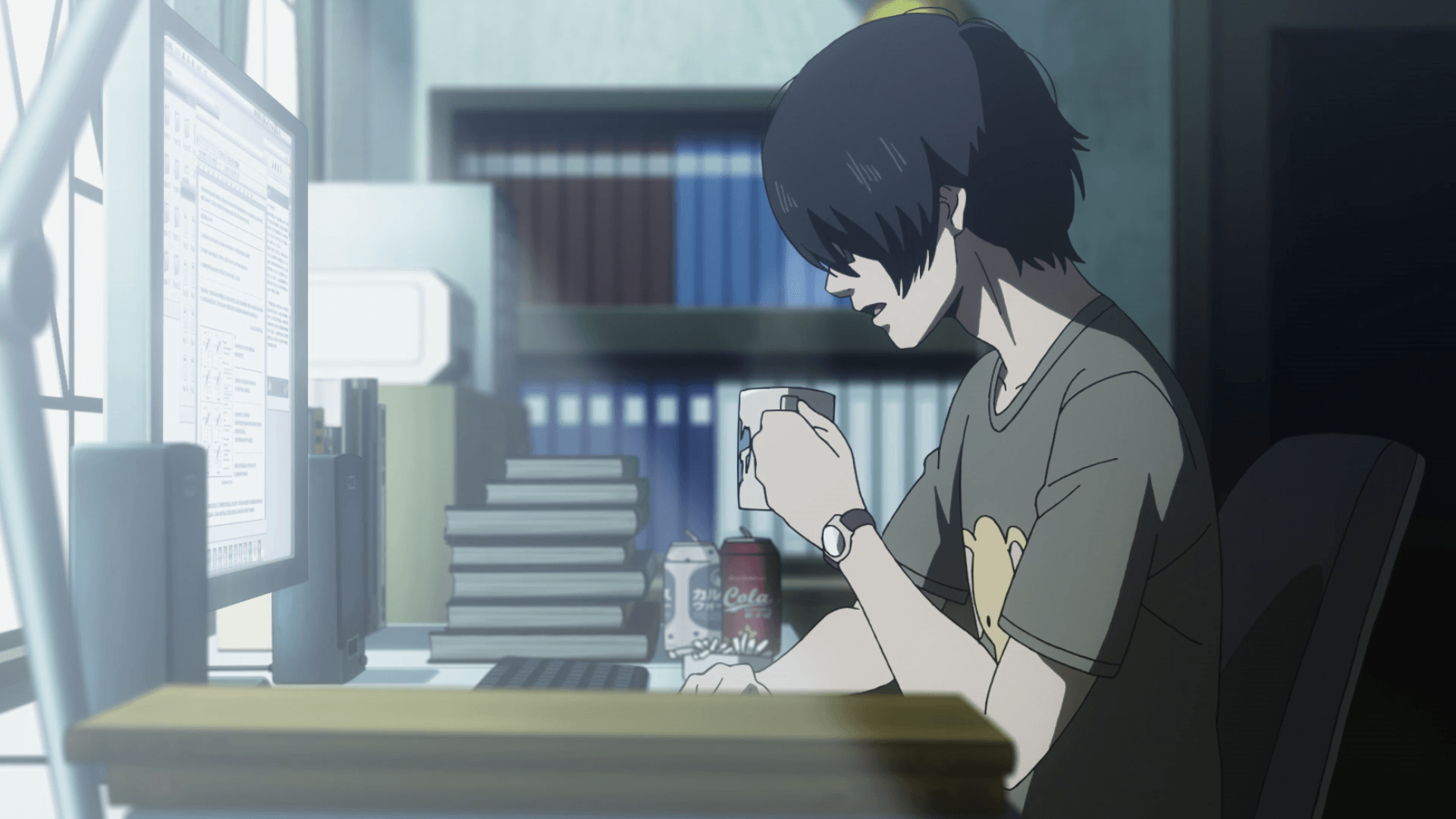
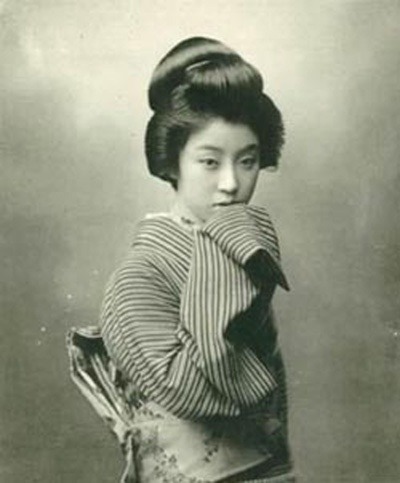
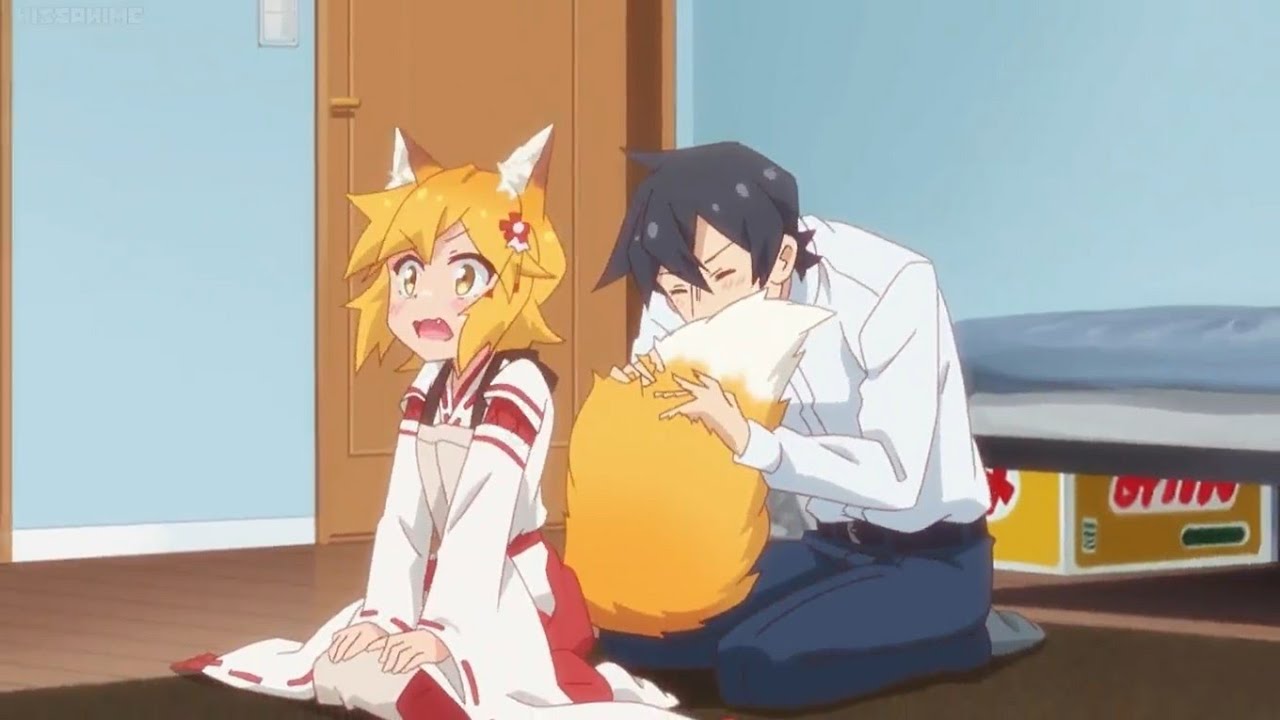
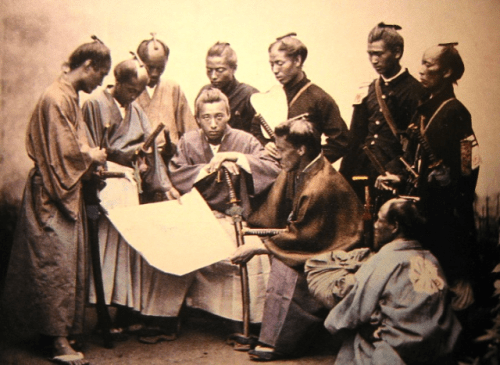
Hello, Chris. Thank you very much for this content!
I’m writing an essay about japanese literature and women rights and I really need to reference this article in the right way. Can you tell me where it was published and the other required informations? I would be grateful!
It depends on if you are using APA or some other citation. But in APA the citation would look something like this:
Kincaid, Chris (2019) “Gender Roles of Women in Modern Japan.” JapanPowered. https://www.japanpowered.com/japan-culture/gender-roles-women-modern-japan. Accessed: whatever access date you want to use.
Good luck with the essay!
I have a question for the last part.
“A Japanese woman earns 73% of a man at the same level. Japanese women account for 49% of university students, but they only make up 14% of faculty positions.”
Although they’re at the same level, I hear from other sources and those that have worked in Japan that wage is determined by age rather than gender. So, an older male can earn more than a younger female, even if by one year, at the same level.
Also, despite the percentage being low for females in the above positions, it doesn’t mean they can’t hold such positions, right? The data just shows that it doesn’t happen often.
Is it just that the sources you found had that data?
The statistics came from Chapter 8 in: Diamond, Jared (2019) Upheaval: Turning Points for Nations in Crisis. New York, Little, Brown and Company.
Yes, I’ve heard similar things about age and salary. As Diamond states, the statistic applies to women at the same level as the men studied. So while older men in higher ranks will earn more than both younger men and younger women within the company, women earn 27% less than men of the same employment level.
That’s right, women can hold such positions. The data shows it isn’t as common as men holding those positions.
Yes,the sources I used at the time stated this. You can see the sources Diamond used at the end of his book too. It’s possible COVID 19 and other events have shifted these data. I haven’t looked into recent statistics. I suspect the data may have shifted a bit, perhaps even against women since many would have had to take on more family duties with school shutdowns, but I’m just speculating.
I see. Thank you for the clarification and explanation. I’ll keep note about that information.
Jared Diamond’s books are well researched and quite interesting.
that was quite nice. How can I get notified for your next articles? I especially liked the pictures.
I’m glad you found the article useful. You can sign up for email notifications in the sidebar (on a desktop) or near the bottom of the website (if you are reading on your phone).
Good Afternoon
I need to ask you some question about the date that you publish this article
I’m not sure what day between June 22, 2014 and May 23, 2016 ?
(because I need to use the exact date to write down in my report as a reference )
Thanks in advance for any help that you are able to provide.
Suchada P.
You can use Jun 22, 2014. May 23 was an edit. I corrected grammar and clarified some sentences I had missed in my first edit passes.
This is a clean and very informative website.
Thank you! I try to keep my small corner of the anime community pleasant.
“Dual income households report less stress on the husband compared to traditional households (Bae, 2010).”
A neat (to me) idea- dual income households have less stress on the husband because they make more income and can provide for better quality of life. Before most women had jobs outside of the home, the men made more(perhaps even twice) as much money as they do now. Because of the higher number of people in the workforce after the majority of women began working outside of the home, businesses had to lower their salaries. Now traditional households make less money than dual income households because only one person is working. Because of this, it would have the same effect if it was a father that stayed at home instead of a mother. So the lowering of wages and increased stress in traditional households is an unfortunate effect of the 19th amendment.
Not my idea, I read it somewhere and wrote about it here. Only the first and fifth sentences are my own, the rest are better written versions of what I read.
Here’s an interesting book on women’s suffrage written by a woman that I found:
Woman’s Profession as Mother and Educator, with Views in Opposition to Woman Suffrage
https://www.gutenberg.org/ebooks/56090
It’s an interesting thought because of how it challenges convention. While more workers means more inflation, I place the responsibility on businesses for being short-sighted. It behooves businesses to maximize wage payouts because it only increases their customer base and benefits the stability of their businesses. This was Henry Ford’s reasoning. But in any case, some of the stress on traditional households extends to the man needing to work longer hours to provide and shoulder that stress alone. This also means less time to spend with his wife, which strains the relationship.
I am sorry, after reading this article I lost all the respect I had for Japanese society. Japanese society seems to be highly sexist . I would never like my wife to call me “shujin” or house master. I don’t even want to write anything on this site. I am sick to the stomach.
Cultural differences can sometimes be troubling, but Japan is making strides toward better equality. Many young couples use the English loanwords “husband” and “wife” instead of traditional words.
Thank you for this post. It’s a quite interesting topic, and it’s nice to see a male researcher/author express a clear understanding and support of feminism.
I’m glad you enjoyed the article.
This is an excellent summary– a life I have personally lived from 1980 to 2001 as the wife of two different Japanese men. Our family was deeply affected by the gender roles. In particular, my first husband was a lolikon in the original sense of the word and forced “buriko” (cuteness) upon me as a young American woman. I didn’t realize it at the time, but media was gradually impressing upon me that acting kawaii was the way to be. The problem with all of this as you pointed out was that we all age…and as a young woman becomes a mother her role changes dramatically in the eyes of her husband. I put together everything that occurred in a book called “The Six-Foot Bonsai: A Soul Lost in the Land of the Rising Sun.” It is fresh and a behind the scenes tale of a dark existence in the shadow of Japanese gender roles. It is an astonishing story really and I recommend this site take a look and possibly review. Stacy
Thank you for your comment. We internalize gender roles to the point of being blind to them. Your story sounds interesting read.
ever notice thats its only women who say masculinity is bad and we men havnt even had a say in it, we arnt aloud to say anything about women but they think they have the right to say how men should feel and act, we want masculinity and it makes us stronger as men and inpowers young boys, feminists dont like it cause it challenges them and feminism apparently and they dont like strong men, they dont care about you and have your best interest at heart they want weaker men so they can thrive, its all rubish
Masculinity–and femininity for that matter–is a cultural construct. Many aspects of both are poisonous and best discarded. Some of what you mention comes from women talking out against these negative aspects of cultural masculinity. Many of the criticisms are valid. I’d like to see masculinity shift away from ideas linked with violence and promiscuity and shift toward nurturing attributes such as fatherhood.
Well, its your blog, and therefore of course you will give your own opinion with it, but while you find gender roles “disagreeable,” I find this “equality” notion disagreeable. I see plenty of concern for women, and some for men, but precious little for the children or the family, which makes sense because “equality” (which is impossible to achieve because the genders are not “equal.”) is a selfish movement, considering only the desires of individuals, while marriage and family are anything but. That is partly, maybe even largely, why marriage and children are considered achieving adulthood. To have a successful, intact family, one cannot be selfish. You are working for something beyond yourself, something far more important.
When I was growing up, most children had both biological parents raising them. Now, broken homes are highly common. That is the “progress” you wish to inflict on Japan. Women aren’t just traditionally the caretakers in Japan and America, it is that way all over the world, for very practical, logical, and realistic reasons. What happens when “equality” takes over? No one is raising the children, which in America is reaching devastating levels. In Japan? They aren’t even having children.
“Equality” kills marriages, because marriages have never been about equality. They have been about taking the best aspects from each gender and using them to create a new household that functions. Both genders and their roles are equally important. Only a person such as yourself treats being a housewife as something inferior, which is youthful, ridiculous nonsense. I’m not exactly a believer in yin and yang, but in this case, the concept makes sense. Two people trying to do the same job rarely creates harmony.
My rant being said, thank you for writing on the subject. I was looking for Japanese cultural notions regarding things like marriage, virginity, etc.
Well, my opinion of equality means equal opportunity, choice, and sharing of child-rearing. I do not see a housewife as inferior. I didn’t intend the opinion section to carry that vibe. I am a firm believer that one parent should remain home and raise the children. After all, there’s no point in having children if you don’t raise them. Equality means the father is just as able to do so as the mother. For equality to work, people need to communicate. One of my buddies dreamed of being a stay-at-home father, and traditional gender roles worked to bar him from that dream. Discarding gender roles would have allowed him to live his dream. Luckily, he was able to find a compromise and spend most of his time raising his children while his wife worked. She was able to build a career as she wanted, and he was able to mostly enjoy his dream of being a stay-at-home dad.
I hope this clarifies! I’m glad you found the article interesting.
it annoys me so much of how sexes things were back then and its a great thing that women now aren’t just housewives
I am also glad women are now able to do what they want. We still need to make progress on male roles. Men are still limited in some ways. For example, society frowns on a man who wants to be a stay at home father. Women still have momentum against them in wages.
well this has really helped me with my understanding of role of women It also has helped me a lot with my assignment
I’m glad you found the article helpful! You may also want to look at the article about Japan’s warrior women.
“Rights are not a commodity that reduces when granted to others” most of the times rights actually behaves like any limited resource; specially if they comes from politics. For start, rights must not obey the point of view of one person with power or the point of view of the group that governs; rights must obey to the kind of equilibrium built by the culture by the past of the time. For this reason any healthy change must be naural, spontaneous and slow.
Independently of the last, I believe that well defined and nature coherent gender roles are valuable, romantic, and make the life of many people clearer and easier.
The biological difference between the genders define some roles. Women are able to give birth, and men are physically stronger. Traditional roles are based on these biological realities, and there isn’t anything wrong with these roles. I agree that change must be gradual. The roles that work in one culture may not work in another.
They also said that having a daughter will bring more happiness to your family than a son. I think it’s because a girl is more sensitive and caring to others.
I still prefer son than daughter though… because I don’t think I can stand it when a guy finally “takes” my daughter away from me…
You make very good points. I remember the academic literature mentioning the idea that daughters are considered lucky. One year, the Year of the Horse, is considered an unlucky year to have daughters. Otherwise, the authors said daughters were generally considered good for the family – as long as the family has a male heir.